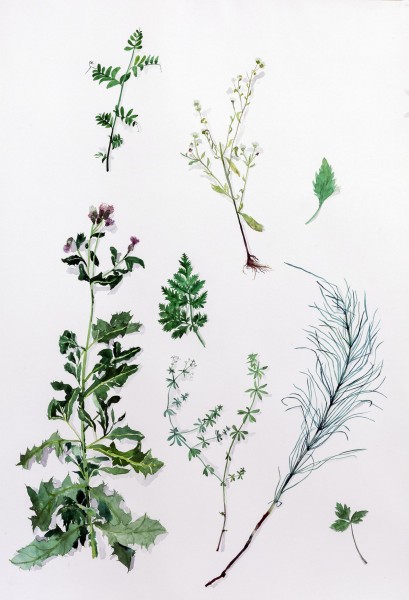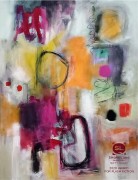If you wanted to know the way my Abuelo pescador tiraba su raya (every morning just before dawn to not wake up the fish) I wouldn’t be able to tell you, I grew up apart from him and his ways and Abuela’s ways—Abuela who would be always in the kitchen, starting the coffee in the greca and, moliendo maiz for the arepas—and I wouldn’t know about them because I didn’t ask, and because I didn’t ask nobody told me—en boca cerrada no entran moscas and so on and so forth—So I didn’t ask about Abuelo and I didn’t ask about the night sky in the Ciénaga that had the most stars in the world because the light company in the village was so bad, “the light doesn’t reach us,” I would hear Abuelo say in the dreams I would have about them: “The light doesn’t reach anyone in this family,” he would say and I would keep on dreaming about them while also dreaming about things that Abuela did that I could never do like sewing, boning a chicken, cooking a mojarra and tending to a family, I wake up and water the few plants I have and think about the dreams I had the night before where Abuelo tells me the reason I can’t see stars in New York is because they’re hiding—they don’t want to see what the world has become—“the world is so far from its beginnings, you see?” he says and draws a line on the ground with a stick, says it’s supposed to tell me everything I need to know but I don’t see anything, I rub my eyes and realize I’m dreaming again, so I wake up and remember that I have his hollowed eyes, his big teeth, the dimple in my right cheek that is supposed to bring me luck, and my Abuela’s stubbornness, I remember that when I hear the tucu-tucu of tambores while walking down Flatbush Avenue I can’t help but tap my feet and think about la Ciénaga, the place I see in dreams, and the pictures of the ancestors my mom burned before I was born and before she married my father and when she swore! she swore! she would never go back to that pueblo de mierda—not a chance—but me, me who gets lost most nights in New York while walking familiar streets, I would, me the one who eats different variations of sad rice with peas or cerdo or whatever cut of meat is discounted at the supermarket would go back in a heartbeat, because you can’t find fresh fish in New York like the one you would find at the Ciénaga, because there’s no chance I’m going to see a clear night like the ones my Abuelos used to have all the time, because I dream of them and when I do, Abuelo reminds me that family even after generations have passed, has a way of coming back into the light.
Ciénaga

Art by Marie-Paule Bilger


 The core workshop of SmokeLong Fitness is all in writing, so you can take part from anywhere at anytime. We are excited about creating a supportive, consistent and structured environment for flash writers to work on their craft in a community. We are thrilled and proud to say that our workshop participants have won, placed, or been listed in every major flash competition. Community works.
The core workshop of SmokeLong Fitness is all in writing, so you can take part from anywhere at anytime. We are excited about creating a supportive, consistent and structured environment for flash writers to work on their craft in a community. We are thrilled and proud to say that our workshop participants have won, placed, or been listed in every major flash competition. Community works.